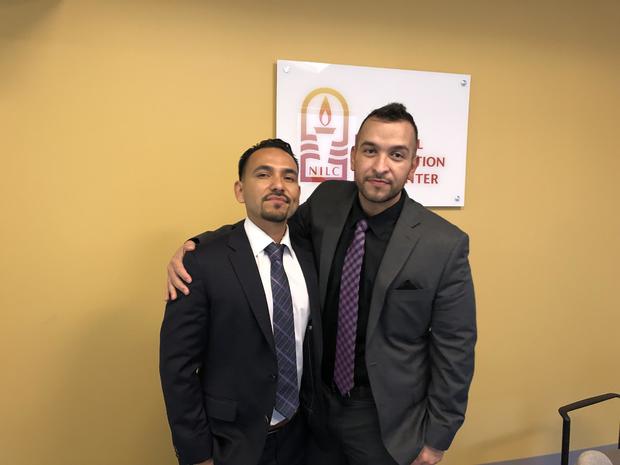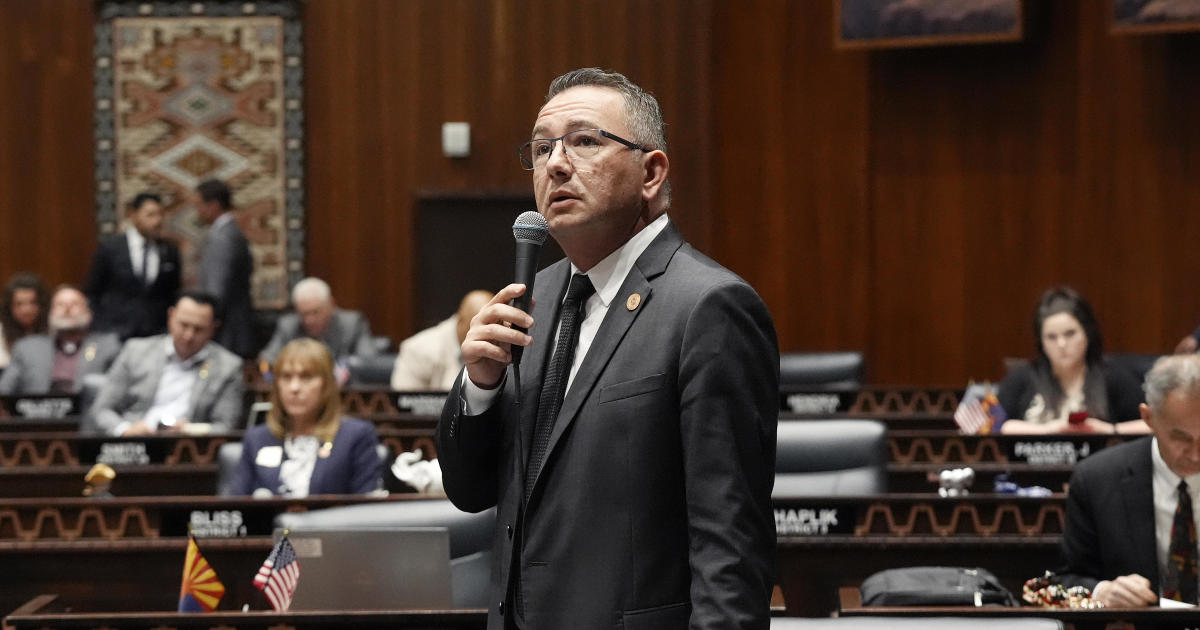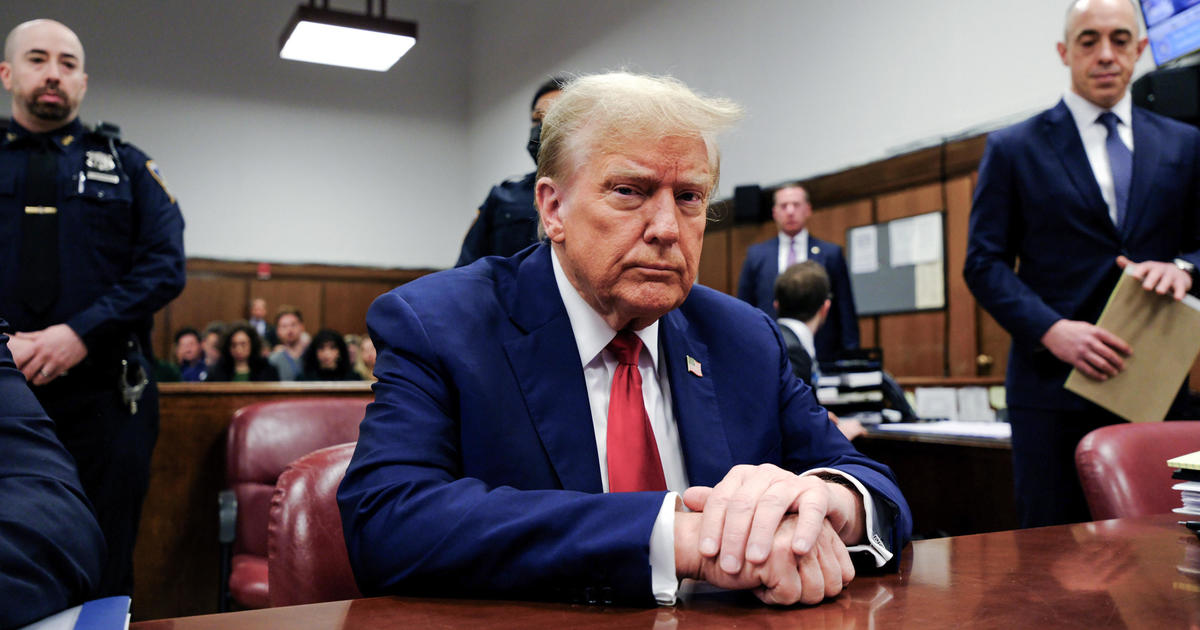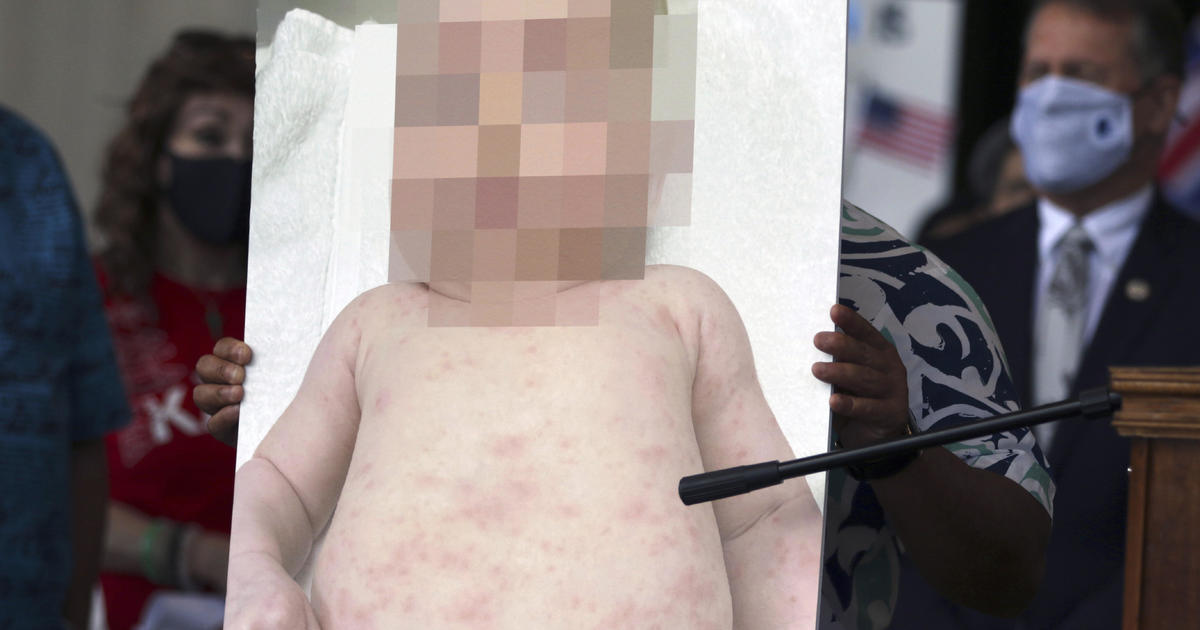LGBT "Dreamer" attending State of the Union sees "opportunity to share my story"
This time last year, Marco Villada was stuck in Mexico trying to reenter the U.S., where he has lived since he and his family immigrated from Mexico when he was 6 years old. He is now one of several current and former Deferred Action for Childhood Arrivals (DACA) recipients invited by members of Congress to attend the State of the Union address Tuesday night.
"It's an opportunity to share my story, and to let people know, including decision-makers, that behind every decision, there are consequences," Villada told CBS News. "Behind everything, there are families that are affected by these decisions, by these laws."
Villada, who is attending as the guest of Democratic Rep. Lou Correa of California, said his presence and that of undocumented immigrants on the House floor to hear President Trump deliver his address will hopefully send a "positive" message to the American public, lawmakers and the president about the immigrant community. He said immigrants have been demonized with hateful rhetoric and targeted through hardline immigration policies by the Trump administration.
"Right now, they are painting the immigrant community as something that we are not," he added.
Villada, a former DACA recipient from California, legalized his status after marrying his husband Israel Serrato in 2014, six months after the Supreme Court struck down the controversial Defense of Marriage Act (DOMA) — which defined marriage as a union between one man and one woman, and allowed states to refuse to recognize same-sex marriage licenses from states where they were legal.
But the process of adjusting his status has not been smooth-sailing. After marrying Serrato and filing paperwork to obtain permanent U.S. residency through his spouse, Villada said he was instructed by U.S. Citizenship and Immigration Services (USCIS) to travel to Mexico for a consular interview. He traveled to his country-of-birth in January 2018, but shortly after, a consular official denied his visa application to reenter the U.S. Villada said USCIS has approved a provisional waiver which should have allowed him to return to his home in California.
Villada remained in Mexico for approximately six months while the National Immigration Law Center and other groups filed a lawsuit to compel the government to allow him to reenter the U.S. and spearheaded a campaign of activism to raise awareness about his case. "It was difficult for not only us, but for our loved ones. There are a lot of people who depend on me," Villada said, noting that he could not take care of his autistic brother while in Mexico.
"It flipped our lives upside down," Serrato added. "My spouse was stuck in a country, a foreign country, that he didn't grew up in."
In the summer of 2018, before a judge ruled on the lawsuit, consular officials reversed their decision and allowed Villada to reenter the U.S. He has since obtained his green card.
Although he considers himself "lucky" for having the opportunity to legalize his status, Villada urged current DACA recipients not to give up hope on one day doing the same, saying ongoing negotiations between lawmakers can prove fruitful.
DACA was instituted by President Barack Obama through executive order in 2012. The program allows young undocumented immigrants, dubbed Dreamers, to obtain work authorizations and driver's licenses if they meet certain requirements, including having arrived in the U.S before they were 16 and obtaining an American high school diploma, a GED or serving honorably in the military.
After several conservatives states threatened to sue the Trump administration if it kept DACA alive, then-Attorney General Jeff Sessions announced a gradual winding down of the program in the fall of 2017. But the Second, Ninth and D.C. Circuits blocked the government from completely dismantling DACA and a prolonged court battle has kept the initiative alive. USCIS currently allows more than 700,000 DACA recipients to renew their protections — valid for two years — but it is not accepting new applications.
Although some lawmakers from both parties have floated the idea of putting DACA recipients on pathway to citizenship in exchange for border spending to avert another government shutdown in the coming weeks, the president has signaled he wants to wait until the Supreme Court rules on the lawsuit against the program before including DACA protections in negotiations with Congress.
Villada said young undocumented immigrants should not be used as bargaining chips to allow the White House to finance the construction of wall on the southwestern border or increase immigration enforcement against non-violent undocumented immigrants.
"They deserve DACA. It shouldn't come at the expense of building a wall or having to separate families," he said.





